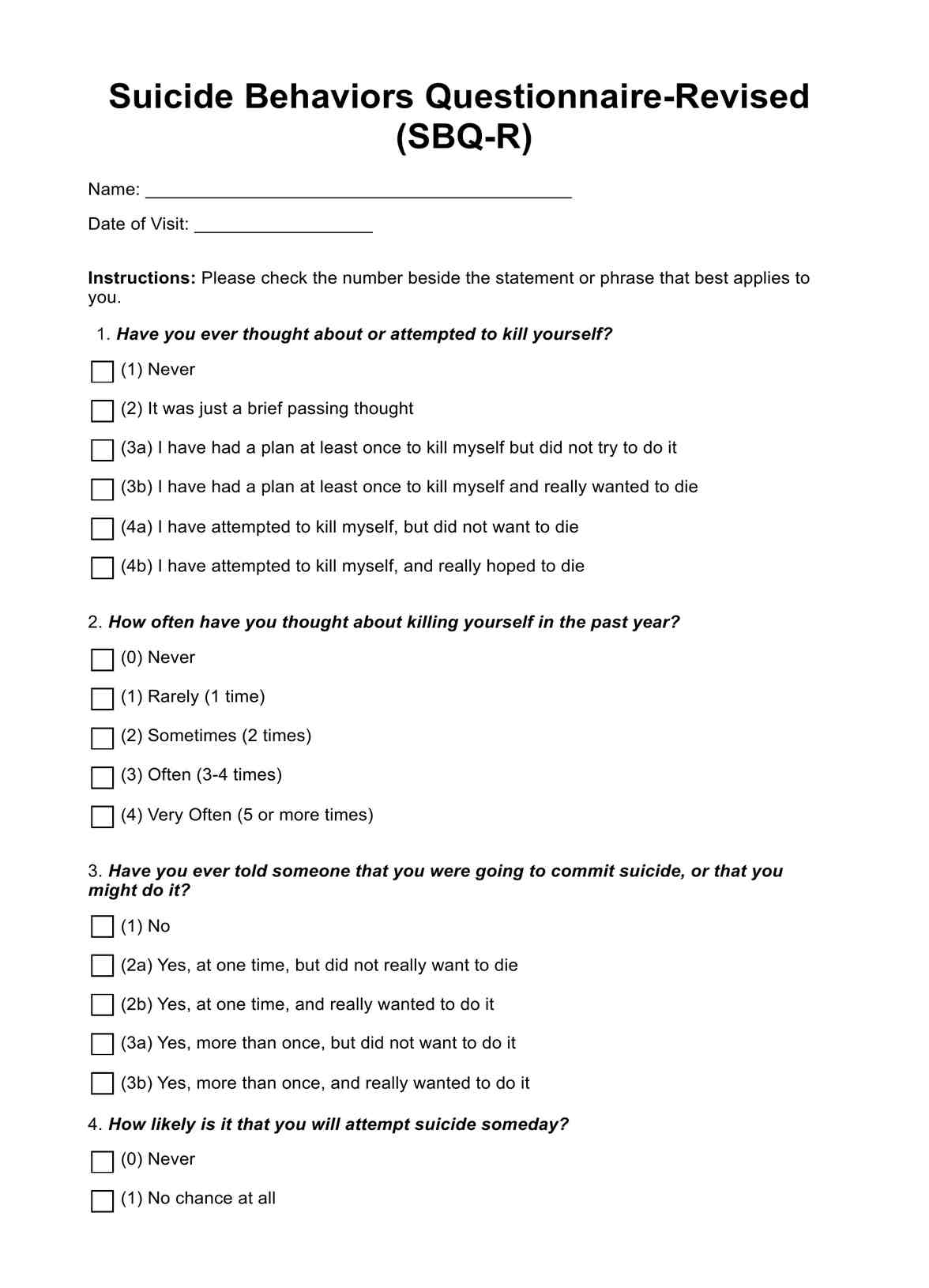The Suicide Behaviors Questionnaire (SBQ) and Suicide Behaviors Questionnaire-Revised (SBQ-R) are utilized by mental health professionals, primary care providers, school counselors, and crisis intervention workers to screen for suicide risk in patients, students, and individuals in crisis.

Suicide Behaviors Questionnaire
Screen for suicide risk with Suicide Behaviors Questionnaires. These self-report tools assess key factors. Clinically validated. Quick and reliable assessment.
Suicide Behaviors Questionnaire Template
Commonly asked questions
The Suicide Behaviors Questionnaire (SBQ) and the Suicide Behaviors Questionnaire-Revised (SBQ-R) are versatile tools that can be employed in primary care, mental health, crisis, and research settings to screen for and assess suicide risk.
The Suicide Behaviors Questionnaire (SBQ) and Suicide Behaviors Questionnaire-Revised (SBQ-R) are self-report screening tools utilized in various settings to assess suicide risk. These brief questionnaires take about 5 minutes to complete and cover important areas such as lifetime ideation/attempts, recent ideation frequency, suicide threats, and self-assessed likelihood of future suicidal behavior.
EHR and practice management software
Get started for free
*No credit card required
Free
$0/usd
Unlimited clients
Telehealth
1GB of storage
Client portal text
Automated billing and online payments











